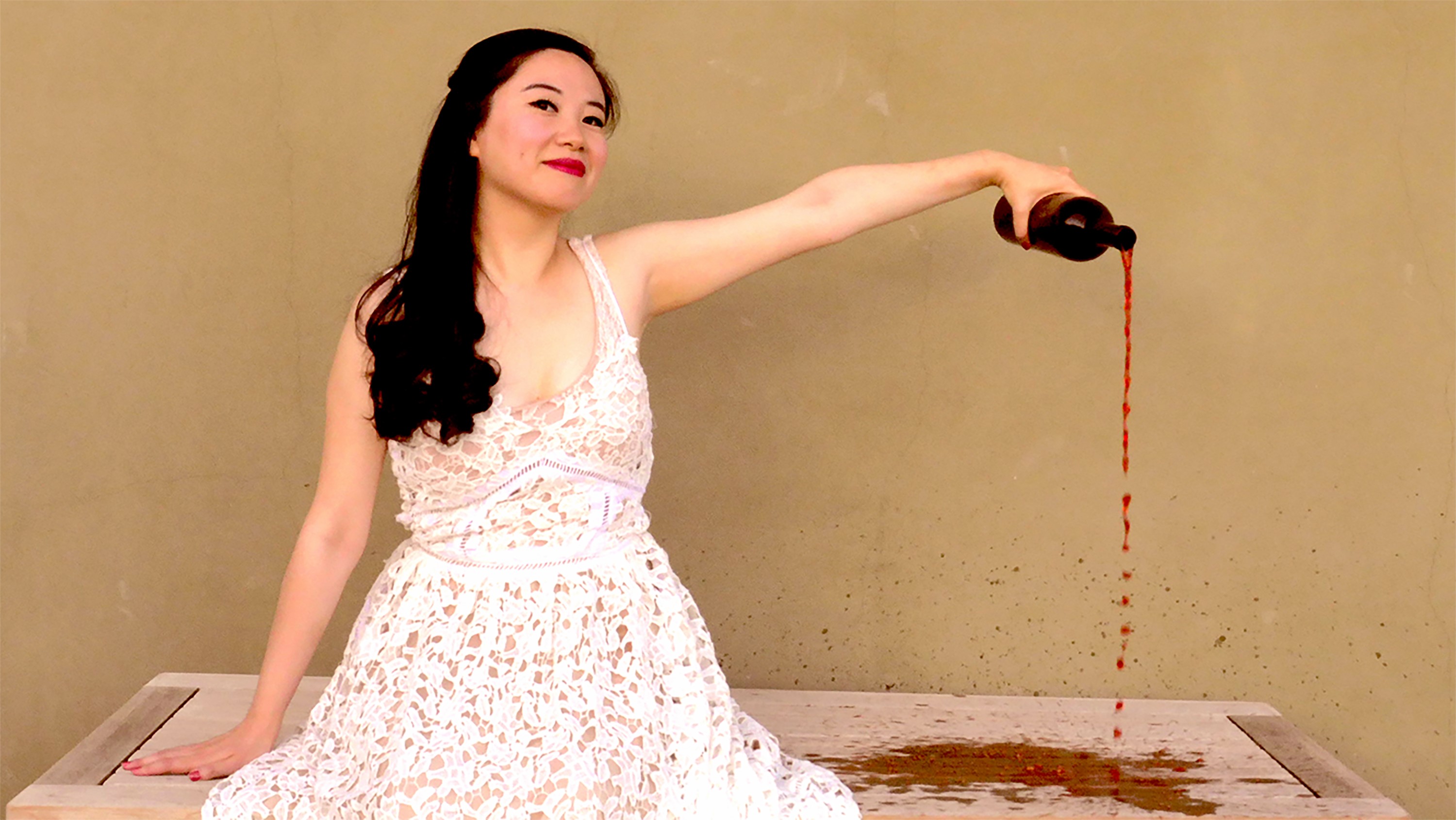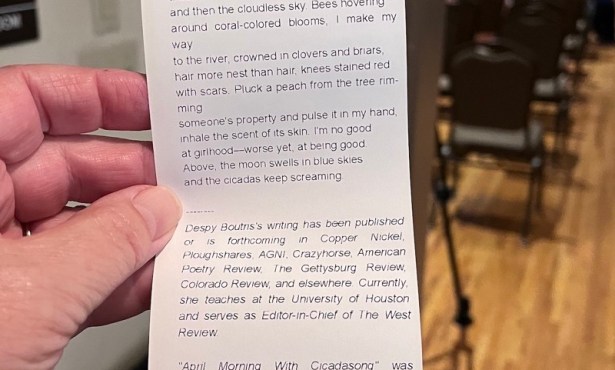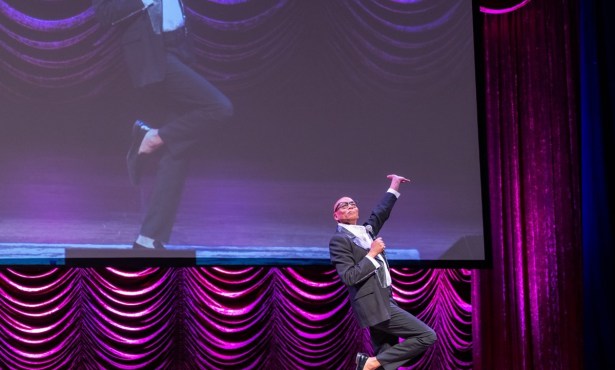‘The Elixir of Love’
The Music Academy of the West Presents a Distinguished Duo Doing Donizetti

Opera, like all music theater, is a hybrid art form — a mix of music, drama, design, and sometimes dance. In great productions — which, in truth, are pretty rare — each of those elements supports the others. That requires a creative team with both good ideas and mutual respect.
Conductor Speranza Scappucci and stage director James Darrah, who are staging the Music Academy of the West’s production of The Elixir of Love, had never met before arriving in Santa Barbara. But as they described their way of working, their compatibility became clear. While one focuses on text and stagecraft and the other on music, neither is working in a vacuum.
“I think part of the director’s job is to respond to the music and to look at how the text is rendered musically,” said Darrah, a St. Louis native who is based in Los Angeles. “I have spent a lot of time thinking about how to render the characters’ thought processes dramatically in a way that bolsters the music rather than competes with it.”
“I always go back to the score to see how the composer put the music into words,” added Scappucci, a native of Italy who studied at the Juilliard School. “There is a reason the composer wrote it in a certain way. And usually that reason is the words.”
The Elixir of Love, an 1832 work by Gaetano Donizetti, tells the story of a naive young man who buys a purported love potion from a traveling huckster in the hope of winning the heart of his beloved. His poignant second-act aria “Una furtiva lagrima” (“A Single, Secret Tear”) has long been a favorite of tenors.
The piece has been described as a rom-com, but the conductor and director both winced at that label. “There is romance, but I don’t necessarily think of it as a comedy,” Scappucci said. “It has funny moments, playful moments, but it also has very deep, expressive moments, especially in the second act. It’s not slapstick.”
“I think it’s wrong to think of this as a frivolous comedy,” agreed Darrah. “These are real people. You have to believe in the things they want and feel. If the audience finds them silly, they won’t invest in them and connect with them.”
In general, don’t expect any jarring juxtapositions.
“I always hate it when people ask, ‘What’s your concept?’” he said. “Well, my concept is to breathe life into the score and have this feel like a good, entertaining, powerful, meaningful show. There’s a lot in Elixir about desire and attraction. It finds levity in the folly of life. That’s incredibly relevant to us.”
“I said to the young singers here at the Music Academy, ‘My job is to help you make the audience feel you are making up the score as it’s happening.’ They have to pretend that these recitatives are things they are discovering, as we would in a conversation. At the same time, you want to make magic out of the music.
“It’s kind of spinning two plates at once. To an audience, it can’t look studied. We try to make very concrete choices that come across to an audience as unexpected and exciting”—which means they must be grounded in the score.
“That doesn’t mean always being literal,” Darrah said. “I love abstraction. But I have to derive whatever I do from what I hear, and what I feel when I listen to the music.”
“In a good opera, the music can descriptively give you a lot of information,” he added. “You then become a searcher of how to best bring that to life.”
411
The Elixir of Love will be performed at 7:30 p.m. on Thursday, July 27, and 2:30 p.m. on Saturday, July 29, in the Granada Theatre (1214 State St.). Call (805) 969-8787 or visit musicacademy.org/elixir.



